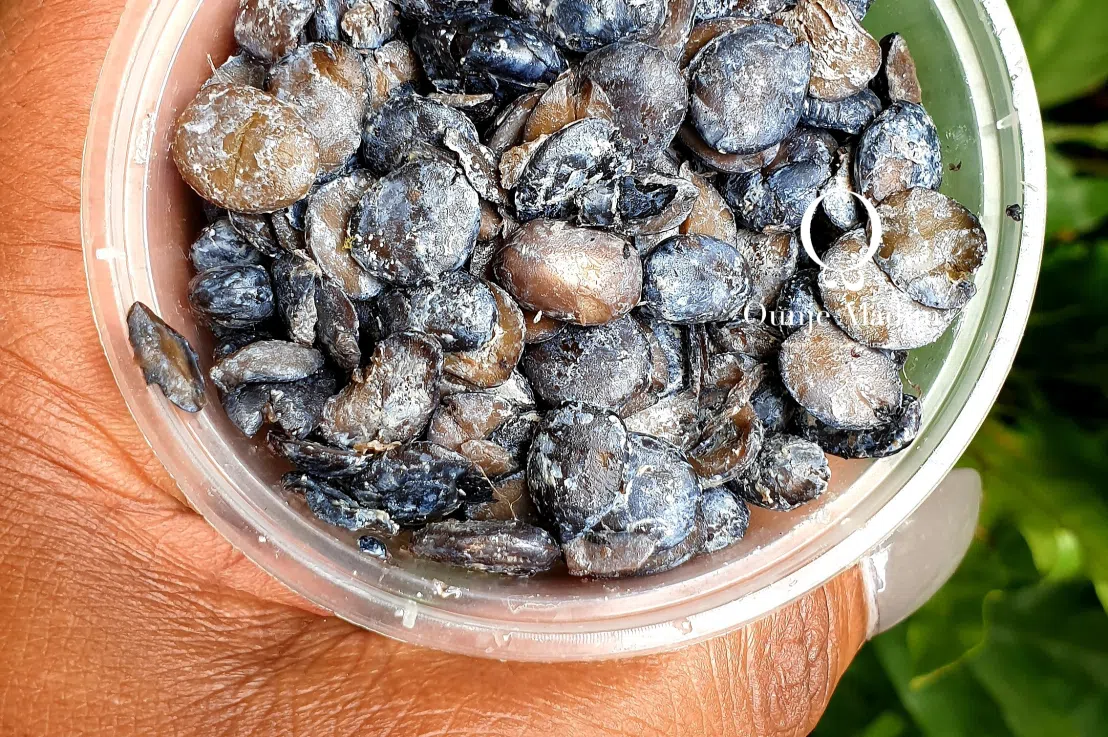Copyright pulse

Iru or African locust bean is one of West Africa’s oldest and healthiest superfoods. It is derived from the seeds of the African locust bean tree, a leguminous plant native to the savannahs and forests of West and Central Africa. It is scientifically known as Parkia biglobosa, and called Iru in the Yoruba language. Across the continent, it is known by various names, including dawadawa (Hausa), ogiri okpei (Igbo), sumbala (Mali), and eware (Edo). Despite regional variations, its purpose is universal to add deep umami flavour and nutrition to food. ALSO READ: 5 Nigerian soups that can heal your body naturally Origin of Iru - Locust Beans The African locust bean tree (Parkia biglobosa) is a perennial that grows and thrives in countries like Nigeria, Benin, Ghana, Mali, Cameroon, Burkina Faso, and Côte d’Ivoire. The tree produces long brown pods filled with a sweet, yellow pulp and hard seeds, known as the locust beans. These seeds are the foundation of iru, harvested mainly by women farmers who play a vital role in its production and preservation. YOU MIGHT LIKE: Who brought shawarma to Nigeria? Here's the backstory How Iru Is Made: The Fermentation Process Producing iru is a meticulous process that can take up to two weeks. Harvesting: Farmers collect the ripe pods from Parkia biglobosa trees.Boiling: The pods are boiled for several hours to soften the tough seed coats.Dehulling: Once boiled, the softened seeds are washed, dehulled, and separated from the pulp.Fermentation: The seeds are wrapped in banana leaves or placed in calabash trays and left to ferment naturally for 3–7 days. This fermentation is what gives iru its distinctive aroma and taste. Studies describe this process as a traditional biotechnology that not only enhances flavour but also improves the nutritional and probiotic profile of the beans. RECOMMENDED: Most Nigerians use this onion, but is it always the best? Why Iru Smells The pungent, sometimes ammoniacal odour is a natural result of fermentation. During this process, proteins in the beans break down into amino acids and ammonia-like compounds, a similar process to what occurs with aged cheese or Japanese miso. While the raw aroma can be intense, once iru is cooked in soups or stews, the sharpness mellows into a savoury fragrance that transforms the entire dish. The Umami Power of Iru Umami is the fifth taste (after sweet, sour, salty, and bitter). It's a deep, meaty savoriness found in foods like mushrooms, cheese, and soy sauce. Fermented locust beans deliver the same depth, making them an indispensable seasoning in Nigerian dishes like egusi soup, ogbono, ewedu, okro soup, gbegiri, and ofada sauce. Some even add iru to concoction rice, stews, or beans for that earthy flavour. EXPLORE: 5 meals you should never cook with stainless steel pots Health Benefits of Locust Beans [Iru] Beyond flavour, iru is a nutritional powerhouse with numerous traditional and scientifically supported health benefits, and they include: 1. Rich in Antioxidants Iru is loaded with polyphenols, flavonoids, and phenolic compounds that protect the body from free radicals, helping reduce the risk of chronic diseases like diabetes and heart disease. 2. Supports Heart Health and Lowers Cholesterol Regular consumption of locust beans may help lower bad cholesterol (LDL) and boost good cholesterol (HDL), promoting cardiovascular health. 3. Helps Manage Hypertension Studies show that compounds like procyanidin in locust bean leaves can help reduce hypertension. 4. Boosts Eye Health Rich in vitamin A, iru supports vision and may prevent conditions such as cataracts, night blindness, and other eye disorders. 5. Aids Digestion and Gut Health As a fermented food, iru acts as a natural probiotic, supporting healthy gut bacteria and improving digestion. 6. Fights Infections and Inflammation The fermented seeds also possess antimicrobial properties that may aid oral health and gum protection. 7. Prevents Anemia Iru is a good source of iron and protein, essential for red blood cell production. It helps prevent fatigue and iron deficiency, particularly among children and pregnant women. 8. Beneficial During Pregnancy Locust beans provide calcium, iron, and protein, which support fetal growth and reduce the risk of gestational diabetes and anemia. 9. May Help Manage Diabetes Research shows that extracts from the locust bean seed can improve blood sugar control and reduce the risk of diabetic complications. SEE THIS: DIY Recipes: 3 different ways to cook eggs to perfection Cooking with Iru There are two main types of iru in Nigerian markets: Iru woro – whole, uncrushed locust beansIru pete – mashed or blended form To use iru, rinse and soak it briefly in warm water to soften, then add it to your dish near the start of cooking. It’s commonly used in: Egusi and ogbono soupsEwedu and gbegiriStewed beans (ewa riro)Okro and vegetable soups Cooking not only enhances its flavour but also tones down the pungency. READ ALSO: How to cook beans the Nigerian way



